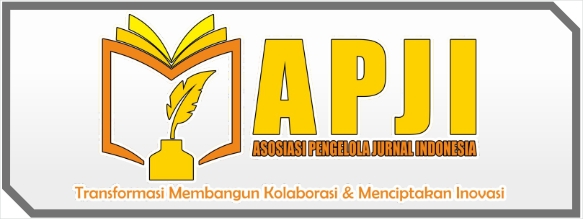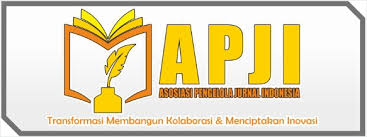Digital Literacy Assistance for Senior Citizens: Bridging the Generational Tech Gap
DOI:
https://doi.org/10.70610/assoeltan.v3i1.804Keywords:
Digital Literacy, Senior Citizens, Digital Inclusion , Community Empowerment, Digital DivideAbstract
This community service initiative aimed to improve digital literacy among senior citizens, addressing the growing gap in technological access and usage that often marginalizes older adults in an increasingly digital world. The goal was to equip seniors with the necessary skills to navigate essential digital platforms for communication, healthcare, and daily activities. The service used a Participatory Action Research (PAR) approach, combining hands-on workshops with peer collaboration and continuous support. Participants engaged in practical tasks such as sending messages, making video calls, and accessing health services online. The results showed a significant improvement in participants' digital confidence, with many expressing increased autonomy and enhanced social connections. However, challenges such as limited access to devices and internet connectivity, along with physical impairments like poor eyesight and reduced dexterity, remained barriers. Despite these challenges, the program successfully fostered an environment of digital empowerment for senior citizens, demonstrating the positive impact of tailored digital literacy programs. In conclusion, this initiative highlights the importance of teaching technical skills and ensuring long-term access to technology for seniors. Future programs should address these barriers through partnerships and inclusive technology design to enhance the sustainability of digital literacy among older adults. This initiative contributes to the broader conversation on digital inclusion and empowerment, emphasizing the need for community-driven solutions to bridge the digital divide.
References
Adam, A., Fitrianto, A. R., Usman, A. H., Aksan, S. M., & Zaini, M. (2024). Evaluation of the Implementation of the Annual Conference of Education Culture and Technology ( ACECT ) 2022 Using the Model Outcome-Based Evaluation ( OBE ). Education Spesialist. Journal Of Tinta Emas, 2(1), 21–26. https://doi.org/10.59535/es.v2i1.298
Ainis Rohtih, W., Saifuddin Hamzah, S., & Sakdiyah, L. (2023). Enhancing Womenpreneurs’ Digital Marketing Skills in Purutrejo Village, Purworejo District, Pasuruan. Engagement: Jurnal Pengabdian Kepada Masyarakat, 7(2), 534–550. https://doi.org/10.29062/engagement.v7i2.1547
Al-Ababneh, H. A. (2022). Researching Global Digital E-Marketing Trends. Eastern-European Journal of Enterprise Technologies, 1(13–115), 26–38. https://doi.org/10.15587/1729-4061.2022.252276
Barizi, A., Isroani, F., & Jamilah, J. (2023). Assistance in Religious Moderation Curriculum Design in the Digital Era Islamic Religious Education Courses in Salahuddin Pasuruan. Amalee: Indonesian Journal of Community Research and Engagement, 4(2), 479–489.
Bray, D. A., Girvan, D. C., & Chorcora, E. N. (2023). Students' perceptions of pedagogy for 21st-century learning instrument (S-POP-21): Concept, validation, and initial results. Thinking Skills and Creativity, 49, 1–14. https://doi.org/10.1016/j.tsc.2023.101319
Eraku, S. S., Baruadi, M. K., Anantadjaya, S. P. D., Fadjarajani, S., Supriatna, U., & Arifin, A. (2023). Digital Literacy and Educators of Islamic Education. Edukasi Islami: Jurnal Pendidikan Islam, 10(01), 569–576.
García-Peñalvo, G. (2016). Future Trends in the Design Strategies and Technological Affordances of E-Learning. Springer, 1–23. https://doi.org/10.1007/978-3-319-17727-4
Jannah, M., Prasojo, L. D., & Jerusalem, M. A. (2020). Elementary school teachers' perceptions of digital technology-based learning in the 21st century: promoting digital technology as the proponent learning tools. Al Ibtida: Jurnal Pendidikan Guru MI, 7(1), 1–18.
Junaid, M., Zhang, Q., Cao, M., & Luqman, A. (2023). Nexus between technology-enabled supply chain dynamic capabilities, integration, resilience, and sustainable performance: An empirical examination of healthcare organizations. Technological Forecasting and Social Change, 196, 122828.
Lee, R., Hoe Looi, K., Faulkner, M., & Neale, L. (2021). The moderating influence of environment factors in an extended community of inquiry model of e-learning. Asia Pacific Journal of Education, 41(1). https://doi.org/10.1080/02188791.2020.1758032
Legi, H., Damanik, D., & Giban, Y. (2023). Transforming Education Through Technological Innovation In The Face Of The Era Of Society 5.0. Educenter: Jurnal Ilmiah Pendidikan, 2(2).
Matli, W., & Ngoepe, M. (2020). Capitalizing on digital literacy skills for capacity development of people who are not in education, employment or training in South Africa. African Journal of Science, Technology, Innovation and Development, 12(2), 129–139.
Novitasari, S. I., Natalia, T. L., Pebrianto, T., & Gresella, Y. E. (2023). Digital Literacy Inherency within Narratives Subject at SMP Kristen Palangka Raya. Journal of Scientific Research, Education, and Technology (JSRET), 2(2), 648–661.
Nugraha, A. P., Wibisono, C., Satriawan, B., Indrayani, Mulyadi, & Damsar. (2022). The Influence Of Transformational Leadership, Job Crafting, Job Satisfaction, And Self-Efficacy On Job Performance Through Work Engagement Of State Civil Apparatus As An Intervening Variable In The Digital Era Of Cases In The Local Government Of Karimun R. Central European Management Journal, 30(3), 2336–2693.
Obloberdiyevna D S, O. K. U. (2022). Teaching languages using modern educational methods. International Journal of Intellectual and Cultural Heritage, 2(3), 105–109.
Otto, E., & Dunens, E. (2021). Imparting the Skills Employers Seek: Community-Engaged Learning as Career Preparation. Journal of Community Engagement and Higher Education, 13(1), 39–56.
Pratama, D., Nurwani, N., & Nasution, Y. S. J. (2023). The Effect of Understanding of Financial Literacy and Ease of Digital Payment on the Continuity of Msmes in the Digitalization Era. Indonesian Interdisciplinary Journal of Sharia Economics (IIJSE), 6(2), 618–638.
Rajadurai, J., Sapuan, N. M., Daud, S., & Abidin, N. (2018). The marketability of technical graduates from higher educational institutions (HEIs) offering technical and vocational education and training (TVET): a case from Malaysia. The Asia-Pacific Education Researcher, 27, 137–144.
Ramlah, R., Riana, N., & Abadi, A. P. (2022). Fun Math Learning For Elementary School Students Through Interactive Puzzle Media. SJME (Supremum Journal of Mathematics Education), 6(1), 25–34. https://doi.org/10.35706/sjme.v6i1.5775
Rusmulyani, R. (2021). Technical Vocational Education and Training (TVET) Innovation Dengan Model Pelatihan Berbasis Kompetensi Dalam Pengembangan Soft-Skill Sumber Daya Manusia. Jurnal Inovasi Penelitian, 1(8), 1495–1506.
Sebsibe, A. S., Argaw, A. S., Bedada, T. B., & Mohammed, A. A. (2023). Swaying pedagogy: A new paradigm for mathematics teachers education in Ethiopia. Social Sciences and Humanities Open, 8(1), 1–10. https://doi.org/10.1016/j.ssaho.2023.100630
Sholeh, A., Fadhilah, S., & Murwaningsih, T. (2019). Character Education Values On Local Wisdom Of Sadranan In Cepogo. Proceedings of the 1st Seminar and Workshop on Research Design, for Education, Social Science, Arts, and Humanities, SEWORD FRESSH 2019, April 27 2019, Surakarta, Central Java, Indonesia.
Soliati, S. (2019). Community empowerment in managing waste through takakura training. Jurnal Empowerment, 8(1), 48–54.
Stephenson, L. (2023). Collective creativity and wellbeing dispositions: Children’s perceptions of learning through drama. Thinking Skills and Creativity, 47(November 2022), 101188. https://doi.org/10.1016/j.tsc.2022.101188
Uyar, A., Nimer, K., Kuzey, C., Shahbaz, M., & Schneider, F. (2021). Can e-government initiatives alleviate tax evasion? The moderation effect of ICT. Technological Forecasting and Social Change, 166, 120597.
Yoshikawa, H., Wuermli, A. J., Raikes, A., Kim, S., & Kabay, S. B. (2018). Toward high‐quality early childhood development programs and policies at national scale: Directions for research in global contexts. Social Policy Report, 31(1), 1–36.
Zaim, M., Refnaldi, & Arsyad, S. (2020). Authentic assessment for speaking skills: Problem and solution for English secondary school teachers in Indonesia. International Journal of Instruction, 13(3). https://doi.org/10.29333/iji.2020.13340a
Downloads
Published
How to Cite
Issue
Section
License
Copyright (c) 2025 Assoeltan: Indonesian Journal of Community Research and Engagement

This work is licensed under a Creative Commons Attribution-NonCommercial-ShareAlike 4.0 International License.
License: CC BY-SA 4.0 (Creative Commons Attribution-ShareAlike 4.0 International License)













